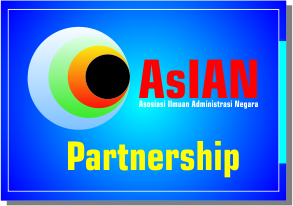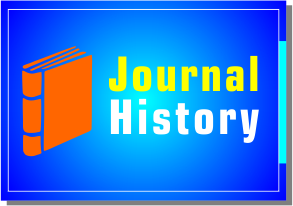Analisis Opini Audit Terhadap Kinerja Organisasi
DOI:
https://doi.org/10.31334/trans.v9i1.88Keywords:
Audit Opinion, Organizational Performance, Profit and Non Profit Organization.Abstract
Financial Statement Audit is an audit conducted by an independent auditor of the financial statements presented by his client to express an opinion on the fairness of the financial statements. The audit report is a formal medium used by the auditor to communicate to interested parties about the conclusions of the audited financial statements. In issuing the audit report, the auditor must comply with the 4 reporting standards set forth in the generally accepted auditing standards.
This analysis is a review of several sources, including from manuals, published studies, legislation published by state organizers as well as some information from media news. This analysis is much related to the phenomenon that has become a source of news in June 2017 and related to the role, function and benefits of the opinion audit conducted by external audit of the organization, both non-profit objectives and expanded to profit organizations. This analysis aims to be more convincing whether there is a significant influence on audit opinion on organizational performance.
The result of this analysis can be concluded that, the existence of audit opinion from result of examination conducted by independent accountant, apparently have a very significant influence to the good performance for non-profit organization (government institution, community institution), or profit organization (public company).
References
Agus, Sukrisno. 2004. Auditng (Pemeriksaan Akuntan ole Kantor Akuntan Publik). Lembaga Penerbit : Fakultas Ekonomi UI.
Aren, Alvin A. Elder, Randal J. dan Beasley, Marks. 2001. Auditng dan Pelayanan Verifikasi (Pendekatan Terpadu), Edisi kesembilan (Edisi Bahasa Indonesia, 2003). Lembaga Penerbit : Indeks - Jakarta.
Ardiyos. 2007. Kamus Standar Akuntansi. Penerbit: Citra Harta Prima-Jakarta.
Baber, W.R. Robert, A. A., & Visvanathan, G. 2001. “Charitable Organizations’ Strategies and Program-spending Ratiosâ€, Accounting Horizons, 15 (4), 329-343.
Boynton, W.C dan Johnson. 2003. “Modern Auditingâ€, Penerbit : Erlangga - Jakarta.
Firmanzah. 2012. Akuntabilitas Penggunaan Anggaran Negara.
Institut Akuntan Publik Indonesia (IAPI). 2011. Standar Profesional Akuntan Publik (SPAP). Lembaga Penerbit : Salemba Empat - Jakarta.
Mardiasmo. 2009. “Akuntansi Sektor Publik:. Penerbit: Yogyakarta : Andi
Riduan Tobing dan Nirwana. 2004. “Kamus Istilah Akuntansiâ€. Jakarta: Atalya Rileni Sucedo.
Sunyoto, Danang,. 2014. Auditng (Pemeriksaan Akuntansi). Lembaga Penerbit : CAPS - Yogyakarta.
Sawyers, Lawrence B. Dittenhofer, Mortimer A. Scheiner, James H,. 2005. “Internal Auditing†dalam Bahasa Indonesia. Penerbit : Salemba Empat - Jakarta.
Tuanakotta, Theodorus M,. 2007. Akuntansi Forensik dan Audit Investigatif. Lembaga Penerbit : FE - UI.
Referensi Tambahan:
Peraturan Menteri Dalam Negeri Nomor 59 Tahun 2007 tentang Pedoman Pengelolaan Keuangan Daerah;
Undang-Undang No. 15 Tahun 2004, tentang kewenangan Badan Pemeriksa Keuangan atau BPK untuk melakukan pemeriksaan;
Jurnal/Penelitian:
Amani, Fauziyah Althaf. 2016. “Pengaruh Ukuran Perusahaan, Profitabilitas, Opini Audit, dan Umur Perusahaan Terhadap Audit Delayâ€. Skripsi. FE Universitas Negeri-Yogyakarta;
Efendy, Muh. Taufiq. 2010. “Pengaruh Kompetensi Independensi dan Motivasi Terhadap Kualitas Audit Aparat Inspektorat dalam Pengawasan Kueangan Daerahâ€. Tesis. Universitas Diponegoro-Semarang;
Damiati, Liska. 2016. “Hasil Audit Pemerintah dan Pengendalian Korupsiâ€. Skripsi FE Universitas Islam Negri Syarif Hidayatullah - Jakarta;
Budianto, Wendy. 2012. “Pengaruh Opini, Temuan Audit dan Gender Terhadap Kinerja Penyelenggaraan Pemerintah Daerah Kabupaten/Kota di Indonesia Tahun 2008-2010â€. Skripsi. FE Universitas Indonesia - Jakarta;
Kartiko, Fitriany dan Veronica. 2010. “Pengaruh Opini Audit, Kualitas Auditor, dan Sistem Informasi Akuntansi Terhadap Keterlambatan Penerbitan Laporan Hasil Pemeriksaan Laporan Keuangan Pemerintah Daerahâ€. FE Universitas Indonesia;
Islami, Dara Ayu Ning Cahya. 2017. “Analisis Pengaruh Reputasi Organisasi dan Kinerja Keuangan Terhadap Kontribusi Organisasi Nirlaba (Studi Empiris pada Organisasi Nirlaba di Indonesia Tahun 2010-2014)â€. Fakultas Ekonomika dan Bisnis Universitas Diponegoro-Semarang;
Masdiantini, Putu Riesty. Erawati, Ni Made. 2016. “Pengaruh Ukuran Pemerintah Daerah, Kemakmuran, Intergovermental Revenue, Temuan dan Opini Audit BPK pada Kinerja Keuanganâ€. Fakultas Ekonomi dan Bisnis Universitas Udayana-Bali;
Rosnidah, Ida. 2010. “Kualitas Audit : Refleksi Hasil Penelitian Empirisâ€. Jurnal Akuntansi Volume XIV/03/September/2010. Jakarta : Candi Mas Metropole.
Rahayu dan Pratiwi. 2011. “Pengaruh Opini Audit Tahun Sebelumnya, Pertumbuhan Perusahaan, Leberage dan Reputasi Auditor Terhadap Penerimaan Opini Audit Going Concernâ€. FE Universitas Gunadarma;
Rahmani, Rezma Hadi. 2010. “Analisis Pengukuran Kinerja Organisasi Nirlaba dengan Metode Balanced Scorecardâ€. Skripsi Program S1 Fakultas Ekonomi Islam Negeri Maulana Malik Ibrahim-Malang;
Suaedy, Soleh. 2011. Mengejar Opini Wajar Tanpa Pengecualian. Makalah
Titis N., Wrastiningrum. 2013. “Analisis Faktor-faktor Yang Mempengaruhi Kecenderungan Penerimaan Opini Audit Going Concern Pada Perusahaan Manufaktur Yang Terdaftar di Bursa Efek Indonesia (BEI) Tahun 2006-2009â€. Fakultan Ekonomi dan Bisnis, Universitas Dian Nuswantoro Semarang;
Koran/Web:
http://nadjibsalatti.web.id/, Tanggal 7 Februari, “Fenomena opini WTPâ€
Kompas.com, Selasa 13 Juni 2017, Kasus Suap Opini WTP, KPK Periksa Empat Direktur di Kemendes PDTT
Published
Issue
Section
License

This work is licensed under a Creative Commons Attribution-ShareAlike 4.0 International License
Please find the rights and licenses in Transparansi : Jurnal Ilmiah Ilmu Administrasi By submitting the article/manuscript of the article, the author(s) agree with this policy. No specific document sign-off is required.
- License
The commercial use of the article will be governed by the Creative Commons Attribution license as currently displayed on Creative Commons Attribution-ShareAlike 4.0 International License.
2. Author(s)' Warranties
The author warrants that the article is original, written by stated author(s), has not been published before, contains no unlawful statements, does not infringe the rights of others, is subject to copyright that is vested exclusively in the author and free of any third party rights, and that any necessary written permissions to quote from other sources have been obtained by the author(s).
3. User Rights
Transparansi : Jurnal Ilmiah Ilmu Administrasi spirit is to disseminate articles published are as free as possible. Under the Creative Commons license, Transparansi : Jurnal Ilmiah Ilmu Administrasi permits users to copy, distribute, display, and perform the work for non-commercial purposes only. Users will also need to attribute authors and Transparansi : Jurnal Ilmiah Ilmu Administrasi on distributing works in the journal and other media of publications.
4. Co-Authorship
If the article was jointly prepared by more than one author, any authors submitting the manuscript warrants that he/she has been authorized by all co-authors to be agreed on this copyright and license notice (agreement) on their behalf, and agrees to inform his/her co-authors of the terms of this policy. Transparansi : Jurnal Ilmiah Ilmu Administrasi will not be held liable for anything that may arise due to the author(s) internal dispute. Transparansi : Jurnal Ilmiah Ilmu Administrasi will only communicate with the corresponding author.
5. Miscellaneous
Transparansi : Jurnal Ilmiah Ilmu Administrasi will publish the article (or have it published) in the journal if the article’s editorial process is successfully completed. Transparansi : Jurnal Ilmiah Ilmu Administrasi editors may modify the article to a style of punctuation, spelling, capitalization, referencing and usage that deems appropriate. The author acknowledges that the article may be published so that it will be publicly accessible and such access will be free of charge for the readers as mentioned in point 3.
Every accepted manuscript should be accompanied by "Copyright Transfer Agreement"prior to the article publication.











